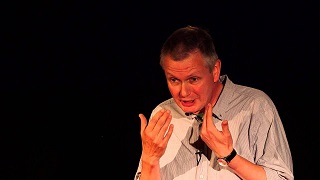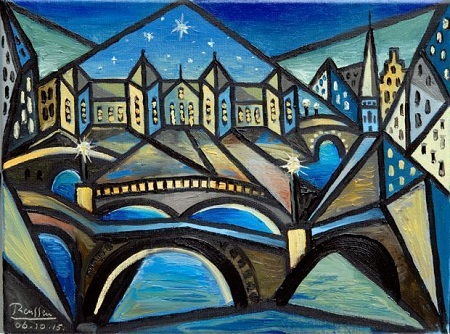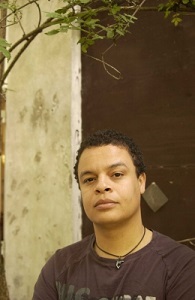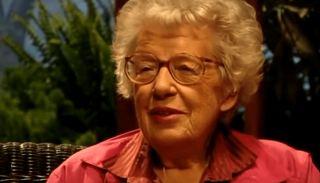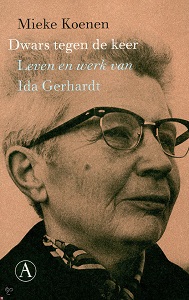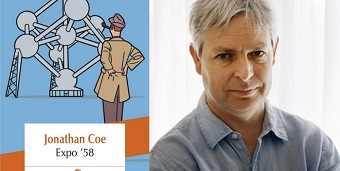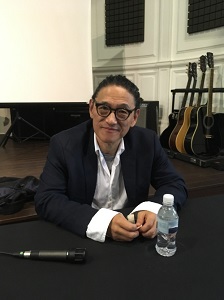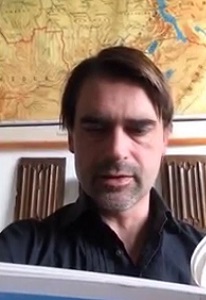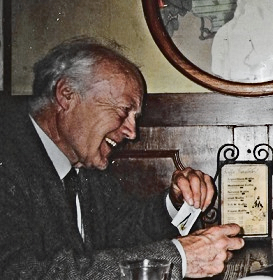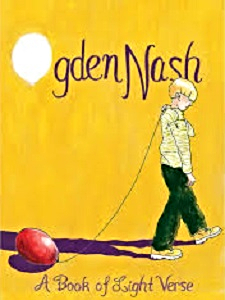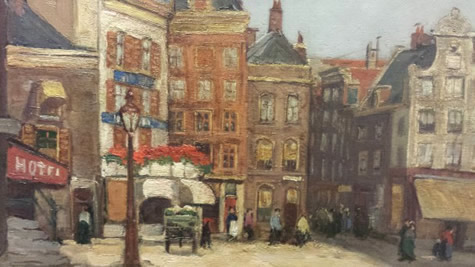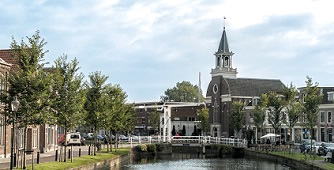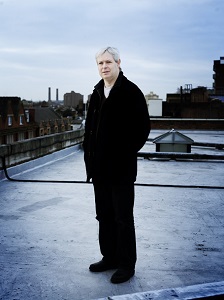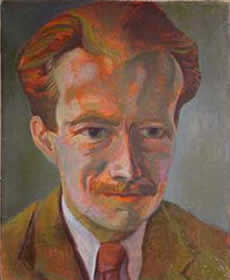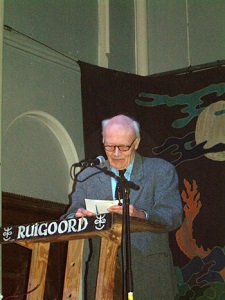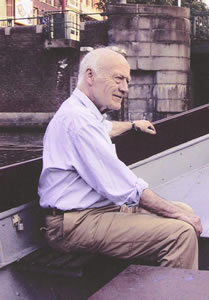De Engelse schrijver Jonathan Coe werd geboren op 19 augustus 1961 in Birmingham. Zie ook alle tags voor Jonathan Coe op dit blog.
Uit: The House of Sleep
“The
name had been pronounced in a tone of tired incredulity, by a woman who was holding a glass of apple juice in one hand, and a half-smoked cigarette in the other. She had short, jet-black hair, a prominent jaw
and lively dark eyes. Sarah recognized her, vaguely, from previous visits to the Cafe Valladon, but did not know her name. She was later to find out that it was Veronica.
‘That’s just so typical,’ the woman added: then closed her eyes as she puffed on her cigarette. She was smiling, perhaps taking the argument less seriously than the thin, pasty, earnest-looking student sitting opposite her.
‘People who don’t know anything about theatre,’ Veronica continued, ‘always talk about Pinter as if he’s one of the greats.’
‘OK,’ said the student. ‘I agree that he’s overrated. I agree with that. That’s exactly what proves my point.’
‘It proves your point?’
‘The British postwar theatrical tradition,’ said the student, ‘is so … etiolated, that –‘
‘Excuse me?’ said an Australian voice next to him. ‘What was that word?’
‘Etiolated,’ said the student. ‘So etiolated, that there’s only one figure who –‘
‘Etiolated?’ said the Australian.
‘Don’t worry about it,’ said Veronica, her smile broadening. ‘He’s just trying to impress us.’
‘What does it mean?’
‘Look
it up in the dictionary,’ snapped the student. ‘My point is, that there’s only one figure in postwar British theatre with a claim to any kind of stature, and even he is overrated. Massively overrated. Ergo,
the theatre is finished.’
‘Ergo?’ said the Australian.
‘It’s over. It has nothing to offer. It has no part to play in contemporary culture, in this country, or in any other country.’
‘So what — you’re saying that I’m wasting my time?’ Veronica asked. ‘That I’m out of tune with the whole … Zeitgeist?’
‘Absolutely. You should change courses at once: to film studies.’
‘Like you.’
‘Like me.’
‘Well,
that’s interesting,’ said Veronica. ‘I mean, just look at the assumptions you’re making. For one thing, you assume that just because I’m interested in the theatre, I must be studying it. Wrong: I’m doing economics. And then, this whole conviction of yours that you’re in possession of some kind of absolute truth: I … well, I find that a very male quality, is all I can say.’
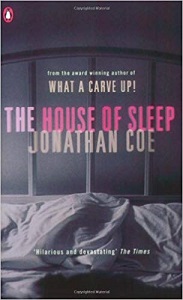
De Amerikaanse dichter Li-Young Lee werd geboren op 19 augustus 1957 in Jakarta, Indonesië. Zie ook alle tags voor Li-Young Lee op dit blog.
Visions And Interpretations
Because this graveyard is a hill,
I must climb up to see my dead,
stopping once midway to rest
beside this tree.
It was here, between the anticipation
of exhaustion, and exhaustion,
between vale and peak,
my father came down to me
and we climbed arm in arm to the top.
He cradled the bouquet I’d brought,
and 1, a good son, never mentioned his grave,
erect like a door behind him.
And it was here, one summer day, I sat down
to read an old book. When I looked up
from the noon-lit page, I saw a vision
of a world about to come, and a world about to go.
Truth is, I’ve not seen my father
since he died, and, no, the dead
do not walk arm in arm with me.
If I carry flowers to them, I do so without their help,
the blossoms not always bright, torch-like,
but often heavy as sodden newspaper.
Truth is, I came here with my son one day,
and we rested against this tree,
and I fell asleep, and dreamed
a dream which, upon my boy waking me, I told.
Neither of us understood.
Then we went up.
Even this is not accurate.
Let me begin again:
Between two griefs, a tree.
Between my hands, white chrysanthemums, yellow
chrysanthemums.
The old book I finished reading
I’ve since read again and again.
And what was far grows near,
and what is near grows more dear,
and all of my visions and interpretations
depend on what I see,
and between my eyes is always
the rain, the migrant rain.
One Heart
Look at the birds. Even flying
is born
out of nothing. The first sky
is inside you, open
at either end of day.
The work of wings
was always freedom, fastening
one heart to every falling thing.
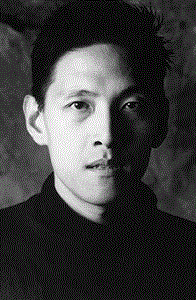
De Vlaamse dichter Frederik Lucien De Laere werd geboren in Brugge op 19 augustus 1971. Zie ook alle tags voor Frederik Lucien De Laere op dit blog.
aardverschuiving
van delict naar verdict?
de getijden van de aarde
lezen we in het groenlands ijs
de planeet reist van warm naar koud
in de parabolen zit verscholen
een eeuwige beweging,
een cyclus als in het woud.
nu het woud brandt
kantelt het klimaat
en wordt het spagaat van deze tijd
is de processierups op de eik
een teken aan de wand
van een nakende precessie?
de strijd om de noordpool:
het is drummen om een deel
van de wegsmeltende kap
de kapsones en capriolen
worden weggemoffeld
als zeehonden
doodgeknuppeld of -geknuffeld
het stormt en de stromen slaan op hol
als de weersmurfmachine
wie heeft aan de hendels geprutst?
het gutst, het vriest, we puffen,
we liggen naakt op een gletsjer
en laten ons fotograferen
wat brengt de toekomst voor tuvalu,
de malediven of de lage landen:
pompen, verzuipen, opvissen
van kolossen door een verre generatie?
zullen we stranden in ons afval
of gaan we cradle-to-cradle
en downcycl’en we
het tot voedsel met het credo
food is waist & waist is food?
zeggen we de CO2-babe vaarwel
en ons geolied libido
en rekenen we op het albedo
(schilderen we alles wit,
te beginnen in lissewege)?
voelen we de doom van venus
en gedragen we ons loom
in de hitte van de dagen
tot de dag des oordeels?
overleven we als noach
op de goddelijke archipel
waar een duif ons hoop brengt
een groene tak
en tsjak
begint alles weer van voren
af aan?
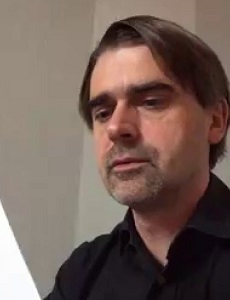
De Nederlandse schrijfster Marion Pauw werd geboren in Tasmanië op 19 augustus 1973. Zie ook alle tags voor Marion Pauw op dit blog.
Uit: Hotel Hartzeer
‘Elk schip is onzinkbaar. Totdat het zinkt.’ Dat schreef ik (S) in 2015 op Twitter nadat het uit was met mijn vriend, de vader van mijn kinderen die toen 1 en 4 waren. De boot van mijn relatie bleek een maand eerder tot mijn verrassing lek te zijn en ik was uit alle macht water aan het hozen, maar hij was dan toch gekapseisd. Ik weet nog hoe mijn vriend vroeg op de avond thuiskwam van een etentje, hoe ik nog hoopte dat dit een goed teken was, maar dat ik meteen aan zijn gezicht zag dat het mis was. De twijfel die hij een maand eerder had geuit (of die ik liever gezegd na flink doorvragen uit hem trok) was uitgemond in een besluit. Hij begon te praten. Het was voorbij.
‘Nee, nee, niet doen!’ riep ik geschrokken alsof ik mijn jongste kind naar een vaas zag grijpen. Ik zag geen glas, maar mijn hart in duizend stukken op de vloer belanden. En mijn gezin. Er zou niets geprobeerd worden; geen relatietherapie, geen vakantie om tot elkaar te komen, zelfs geen time-out. Het was gewoon – met onmiddellijke ingang en eenzijdig besloten – klaar tussen ons.
Als je gedumpt wordt, is dat (ook al was het misschien niet eens onverwacht en stond de relatie al tijden op springen) een schok. Je hart breekt en dat kun je bijna horen, maar dat voel je gek genoeg niet als eerste. In het allereerste begin barst de bom in je hoofd, waar de zin ‘Het is voorbij’ maar in blijft doorklinken, honderden keren en zelfs dan geloof je het nog niet. Je hersenen kunnen die informatie niet aan, want het is in tegenspraak met hoe jij zelf denkt en met wat je voelt, wilt en verwacht.
Connie Palmen nam plaats op de bank in onze villa en zij duidde die eerste schok als volgt: ‘Het gaat niet alleen om het idee dat je niet meer bij iemand kunt aankloppen, ik voelde me ook werkelijk half doorgehakt.”

De Nederlandse schrijver, dichter en vertaler Louis Th. Lehmann werd geboren op 19 augustus 1920 in Rotterdam. Zie ook alle tags voor Louis Th. Lehmann op dit blog.
Voor de Spiegel
De ondergaande zon schijnt door mijn tanden,
mijn baard is als een paardekruis gelijnd,
het knoestig smoel dat door mijn wangen schijnt
wil rotten in de klei van niemandslanden.
Begerig krommen zich mijn loopgraafhanden:
ik heb het roofdier lief dat in mij schrijnt,
en haat mijn zwakke geest waarin hij kwijnt,
wil uit mijn lichaam slopen al zijn banden.
Ik word bezeten door de dolle wens,
hem onbevreesd geheel te kunnen wezen,
die lucht en water als domeinen wil,
maar ken van elke ruimtekoorts de grens;
ik zoek de vrouw die niet voor hem zal vrezen,
een zak in ’t zonlicht maakt mijn flanken kil.
Signature Tune,
Rijdt u maar aangenaam door Mijn geschriften,
mijn Rets is de getuige van Mijn driften.
Dat zint hem niet, hij zint op wraak en
hij wappert met Mijn haar en regenjas,
dat laatste liefst tussen zijn spaken.
Hij wenst, als blijkt uit zijn langdurig heng’len
zich even vurig met zijn buurfiets te verstreng’len
als ik met haar erop, als ’t mooglijk was.
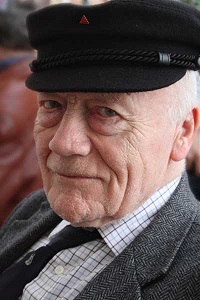
De Amerikaanse dichter Frederic Ogden Nash werd geboren in Rye, New York, op 19 augustus 1902. Zie ook alle tags voor Ogden Nash op dit blog.
Reprise
Geniuses of countless nations
Have told their love for generations
Till all their memorable phrases
Are common as goldenrod or daisies.
Their girls have glimmered like the moon,
Or shimmered like a summer moon,
Stood like a lily, fled like a fawn,
Now the sunset, now the dawn,
Here the princess in the tower
There the sweet forbidden flower.
Darling, when I look at you
Every aged phrase is new,
And there are moments when it seems
I’ve married one of Shakespeare’s dreams.
Reflection On The Fallibility Of Nemesis
He who is ridden by a conscience
Worries about a lot of nonscience;
He without benefit of scruples
His fun and income soon quadruples.
Reflection On A Wicked World
Purity
Is obscurity.
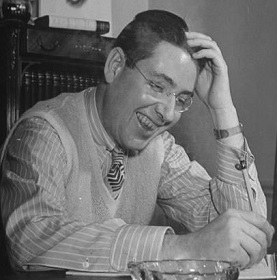
De Iers-Amerikaanse schrijver Frank McCourt werd geboren op 19 augustus 1930 in New York. Zie ook mijn blog van 19 augustus 2010 en eveneens alle tags voor Frank McCourt op dit blog.
Uit: Tis
“The
priest sat next to me at the dinner table. He whispered that those two old Protestants were very rich from raising Thoroughbred racehorses in Kentucky and if I had any sense I’d be nice to them, you never know.
I wanted to ask what was the proper way to be nice to rich Protestants who raise racehorses but I couldn’t for fear the priest might think I was a fool. I heard the Protestants say the Irish people were so charming and their children so adorable you hardly noticed how poor they were. I knew that if I ever talked to the rich Protestants I’d have to smile and show my destroyed teeth and that would be the end of it. The minute I made some money in America I’d have to rush to a dentist to have my smile mended. You could see from the magazines and the films how the smile opened doors and brought girls running and if I didn’t have the smile I might as well go back to Limerick and get a job sorting letters in a dark back room at the post office where they wouldn’t care if you hadn’t a tooth in your head.
Before bedtime the steward served tea and biscuits in the lounge. The priest said, I’ll have a double Scotch, forget the tea, Michael, the whiskey helps me sleep. He drank his whiskey and whispered to me again, Did you talk to the rich people from Kentucky?
I didn’t.
Dammit. What’s the matter with you? Don’t you want to get ahead in the world?
I do.
Well, why don’t you talk to the rich people from Kentucky? They might take a fancy to you and give you a job as stable boy or something and you could rise in the ranks instead of going to New York which is one
big occasion of sin, a sink of depravity where a Catholic has to fight day and night to keep the faith. So, why can’t you talk to the nice people from Kentucky and make something of yourself?
Whenever he brought up the rich people from Kentucky he whispered and I didn’t know what to say. If my brother Malachy were here he’d march right up to the rich people and charm them and they’d probably adopt him and leave him their millions along with stables, racehorses, a big house, and maids to clean it. I never talked to rich people in my life except to say, Telegram, ma’am, and then I’d be told go round to the servants’ entrance, this is the front door and don’t you know any better.”
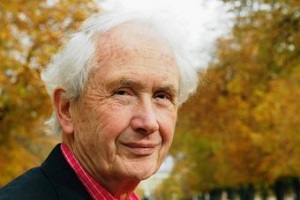
De Engelse toneelschrijver, dichter en criticus John Dryden werd geboren op 19 augustus 1631 in Aldwinkle (Northamptonshire). Zie ook alle tags voor John Dryden op dit blog.
Ah, How Sweet It Is To Love!
AH, how sweet it is to love!
Ah, how gay is young Desire!
And what pleasing pains we prove
When we first approach Love’s fire!
Pains of love be sweeter far
Than all other pleasures are.
Sighs which are from lovers blown
Do but gently heave the heart:
Ev’n the tears they shed alone
Cure, like trickling balm, their smart:
Lovers, when they lose their breath,
Bleed away in easy death.
Love and Time with reverence use,
Treat them like a parting friend;
Nor the golden gifts refuse
Which in youth sincere they send:
For each year their price is more,
And they less simple than before.
Love, like spring-tides full and high,
Swells in every youthful vein;
But each tide does less supply,
Till they quite shrink in again:
If a flow in age appear,
‘Tis but rain, and runs not clear.
Dreams
Dreams are but interludes which Fancy makes;
When monarch Reason sleeps, this mimic wakes:
Compounds a medley of disjointed things,
A mob of cobblers, and a court of kings:
Light fumes are merry, grosser fumes are sad;
Both are the reasonable soul run mad;
And many monstrous forms in sleep we see,
That neither were, nor are, nor e’er can be.
Sometimes forgotten things long cast behind
Rush forward in the brain, and come to mind.
The nurse’s legends are for truths received,
And the man dreams but what the boy believed.
Sometimes we but rehearse a former play,
The night restores our actions done by day;
As hounds in sleep will open for their prey.
In short, the farce of dreams is of a piece,
Chimeras all; and more absurd, or less.
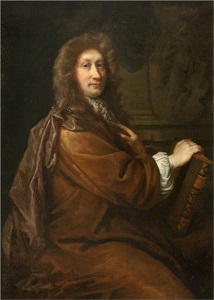
Portret door John Riley, z. j.
Onafhankelijk van geboortedata
De Britse dichter en humorist Matt Harvey humorist en performance-dichter werd geboren in Cheshire in 1962. In zijn jeugd trok hij door Groot-Brittannië en verbleef in Cheshire, Schotland en Ierland; hij vestigde zich in Twickenham, Londen op de leeftijd van 15. Als tiener werd hij beïnvloed door de Mersey Poets, waaronder Adrian Henri, Roger McGough en Brian Patten. Hij had een moeilijke jeugd en als twintiger bezocht hij de Self Heal Association, een psychotherapeutisch centrum in Devon. Hij werd later helper in het centrum en is blijven spreken en presteren op conferenties over geestelijke gezondheidszorg. Hij begon zijn carrière als performance kunstenaar in 1992 en gaf live optredens aan het publiek in het zuidwesten van Engeland. Hij heeft sindsdien in het hele land op conferenties, cabarets, hogescholen en literaire festivals opgetreden. Harvey werd benoemd tot Official Wimbledon Championship Poet 2010. De taak bestond erin om elke dag van het kampioenschap een gedicht uit te brengen om de toeschouwers te vermaken. Harvey is gastheer van Wondermentalist – het poëziecabaret van Radio 4 – en auteur van o.a. “The Hole in the Sum van my Parts”, “Where Earwigs Dare” “Mindless Body Spineless Mind” en “The Element in the Room”. Hij is getrouwd, met één vrouw. Ze hebben twee zonen.
Where Earwigs Dare
A silver trail across the monitor;
fresh mouse-droppings beneath the swivel-chair;
the view obscured by rogue japonica.
Released into the wild, where earwigs dare –
you first went freelance – and then gently feral.
You worked from home – then wandered out again,
roughed it with spider, ant, shrew, blackbird, squirrel
in your won realm, your micro-Vatican.
No name conveys exactly what it is –
Chalet? Gazebo? You were not misled
by studios, snugs, garden offices,
workshops or outhouses. A shed’s a shed –
and proud of it. You wouldn’t want to hide it.
Wi-Fi-enabled rain-proof wooden box –
a box to sit in while you think outside it.
Self-rattling cage, den, poop-deck, paradox,
hutch with home-rule, cramped cubicle of freedom,
laboratory, thought-palace, badger’s bower,
plot both to sow seeds and to go to seed in,
cobwebbed, Cuprinol-scented, Seat of Power.
Slug
low-born land mollusc
high-impact intruder
easy oozer, slime exuder
free-loader, sprout-spoiler
meandering marauder
disrespecter
of my broad-beans’ border
you’ve a one-track mind
in a one-track bodydiligent pillager
soft-horned invisigoth
slow silver scribbler
paradoxically busy sloth
tithe-taker, hole-maker
indiscriminate direct debitor
bold-as-brass brassica editor
you’re a squishetty spoilsport
a glistening drag
the liquorice all-sort
nobody wants to find in the bag
it’s time that you were brought to book
you’re not as tasty as you look
listen chum, you are disposable
look at my thumb, it is opposable
unwelcome invertebrate
this might just hurt a bit
I pluck you and chuck you
into distant dew-drenched greenery
isn’t that mean of me?
slug, when all is said and done
you can hide but you can’t run
